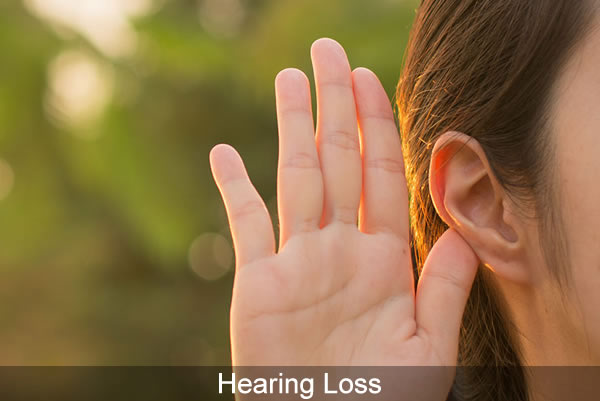- Home
- Hearing Loss
- Hearing Aid Use And Care
How much do you know about hearing loss?
2021-06-01During daily life, have you ever encountered a situation where you cannot hear people clearly? Or is there a situation where a friend complains that your ears are not good? Or is there a communication barrier when you answer the phone?
Are you beginning to suspect that your hearing has fallen?
The normal hearing range of a person is in a quiet state, and the test value of the hearing tester is between 0 and 25 decibels. If it is higher than this decibel, it is considered hearing loss. So where are we going to test? Generally, hospitals can detect whether our hearing is normal, but outpatient services need to be registered in line and cost money. Nowadays, under the popularity of hearing aids, major brands of hearing aid stores can test your hearing and help you for free. Regular hearing examinations help to detect the first signs of hearing loss early.

The reason of hearing loss.
Hearing loss is what we call "deafness", which is a manifestation of auditory dysfunction. Clinically, hearing loss is divided into these three types: conductive hearing loss, sensorineural hearing loss, and mixed hearing loss.

Conductive hearing loss refers to a disease that causes different degrees of hearing loss due to diseases of the external auditory canal and middle ear. It is common in children with otitis media, ear trauma or ear deformities. The cause of conductive deafness is relatively clear, and the diagnosis is not difficult. Generally, medication or surgery can be used. Hearing loss caused by diseases of the inner ear, auditory nerve, or auditory center is called sensorineural hearing loss. It is common in presbycusis, sudden, drug-induced deafness and so on. The cause is relatively difficult to diagnose. It usually requires more clinical examinations to determine the cause. Prevention is more important and more effective than treatment. Sensory deafness is an early detection and early diagnosis and treatment. There is currently no specific medicine or surgery that can completely restore hearing. Mixed deafness is a disease in which diseases of the middle and inner ears coexist and cause hearing impairment. It can be caused by different diseases, such as secretory otitis media with presbycusis, ossicular chain interruption with sudden deafness, etc., leading to dysfunction of the middle ear and inner ear respectively. It is also difficult to treat, and it is necessary to treat the lesions of the middle and inner ear separately. Most of the hearing loss is irreversible, so once it is discovered that early intervention, for patients whose medical or surgical treatment is ineffective, doctors will often recommend hearing aids or cochlear implants to help our ears listen.
Don't take it seriously: Hearing Loss
Compared with other diseases of the body, hearing loss is not fatal, but it does not mean that we can despise it. In particular, some elderly people feel that they can not hear clearly for so many years anyway. Hearing loss cannot be ignored, it will cause great harm to our body and mind.
- Patients with presbycusis are often reluctant to speak. With the increase of hearing loss, the patient's communication ability also began to decline. Perhaps the children or friends are patient and repeat it over and over again with the elderly, but the elderly can perceive the existence of this obstacle and gradually become reluctant to speak. Over time, the psychological harm to them is not small, and the elderly with hearing loss are more likely to suffer from Alzheimer's than ordinary elderly people.
- There are potential safety hazards when traveling. An elderly person with hearing loss has a poor ability to locate sounds, and it is not easy to distinguish the location of the whistle. There may be vehicles next to him that he did not know in the past, and there is a big hidden danger when traveling.
- Hearing impairment will have a huge adverse effect on children's language and pronunciation learning, cognitive development and psychology, so we must detect and intervene in time for children with hearing impairment.
Hearing bring us a wonderful life experience, we should take good care of our ears!
Latest
- 4 Essential Communication Rules for Family Members of Hearing Aid Users
- Hearing Aid "Break-In Period": Say Goodbye to Discomfort, Hello to Clear Sound
- The ultimate guide on how to choose hearing aids for seniors
- In addition to performance, how do parents choose children's hearing aids?
- Hearing Care Professional: How Do You Maintain Your Hearing Aids Regularly?
Hearing Aid Use And Care













All 0 comments